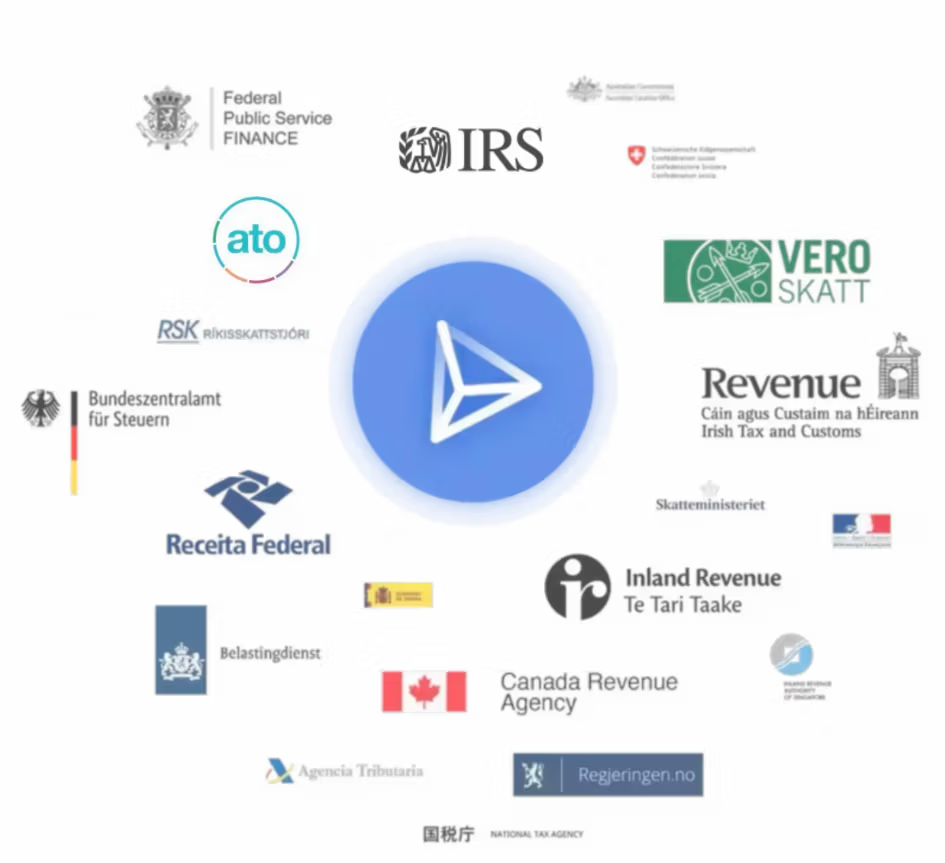Table of Contents
- Crypto Tax Guidance Essentials
- Understanding IRS Digital Asset Reporting
- Answering the Digital Asset Question
- Reporting Digital Asset Income
- Penalties for Non-Compliance
- Koinly Crypto Tax Software
- FAQs
Key Takeaways
✅ Taxpayers must answer the digital asset question on their IRS tax return.
✅ Reporting crypto-related income is mandatory to avoid penalties.
✅ Capital gains, staking rewards, and NFT transactions require proper documentation.
✅ IRS tracking methods make it difficult to hide digital asset activity.
Crypto Tax Guidance Essentials

The IRS has made it clear: taxpayers must correctly report digital asset transactions on their federal income tax returns. This crypto tax guidance ensures that individuals, businesses, and investors properly disclose income derived from cryptocurrency, NFTs, and other digital assets. Failing to comply may result in penalties, interest charges, and even audits.
Understanding IRS Digital Asset Reporting
What is a Digital Asset?
A digital asset is a virtual representation of value recorded on a cryptographically secured, distributed ledger. Common digital assets include:
IRS Forms Requiring Digital Asset Disclosure
Taxpayers must answer the digital asset question on various IRS forms:
Advertisement
Join Gemini today and get $15 in free Bitcoin when you trade with an easy, secure and U.S.-regulated crypto exchange you can trust. Offer valid for U.S. residents only; crypto investments are risky.
- 1040 (Individual Income Tax Return)
- 1040-SR (Tax Return for Seniors)
- 1040-NR (Nonresident Alien Income Tax Return)
- 1041 (Estates and Trusts Income Tax Return)
- 1065 (Partnership Income Tax Return)
- 1120 (Corporate Tax Return)
- 1120-S (S Corporation Tax Return)
Answering the Digital Asset Question
When to Check “Yes”
Taxpayers must check “Yes” if they:
- Received digital assets as payment for goods or services.
- Earned digital assets through mining or staking.
- Acquired assets via an airdrop or hard fork.
- Sold, traded, or exchanged digital assets.
- Used crypto to purchase goods or services.
When to Check “No”
The “No” box can be checked if the taxpayer only:
- Held digital assets without selling or transferring them.
- Moved assets between personal wallets or accounts.
- Purchased cryptocurrency using fiat currency.
Reporting Digital Asset Income
Capital Gains and Losses
Investors must report crypto sales on Form 8949 and Schedule D (Form 1040) to calculate capital gains or losses.
Receiving Digital Assets as Payment
If an employee or contractor receives crypto as income, they must report it as wages or self-employment income on Schedule C (Form 1040).
Gifted or Transferred Digital Assets
- Gifted crypto may require filing Form 709 (Gift Tax Return).
- Transferring crypto between owned accounts is not taxable.
Penalties for Non-Compliance
Failing to report digital asset income may lead to:
- Interest and penalty fees on unpaid taxes.
- IRS audits and potential fines.
- Criminal charges in cases of intentional tax evasion.
Koinly Crypto Tax Software
Koinly is a powerful crypto tax software that simplifies tracking and reporting for traders, investors, and businesses. It automatically syncs with exchanges, wallets, and blockchains to calculate gains, losses, and tax liabilities with precision. Whether you’re dealing with spot trading, staking, DeFi, or NFTs, Koinly generates accurate tax reports that comply with regulations in multiple countries. With an intuitive interface and seamless integrations, it eliminates the hassle of manual calculations, making crypto tax season stress-free.
FAQs
1. What happens if I don’t report my crypto transactions?
Failure to report may lead to fines, interest charges, or audits by the IRS.
2. Do I need to report digital assets if I only bought and held them?
No, simply holding digital assets without transactions does not require reporting.
3. How do I report crypto received as payment?
If paid in crypto, report the fair market value as income on your tax return.
4. Are NFT transactions taxable?
Yes, NFT sales, trades, or purchases may trigger capital gains tax obligations.
5. Where can I get official IRS guidance?
Refer to Publication 525 (Taxable and Nontaxable Income) on the IRS website.
Final Thoughts Staying compliant with crypto tax guidance is crucial for avoiding unnecessary penalties. Properly reporting all digital asset transactions ensures a smooth tax filing process and peace of mind. For more information, please visit the IRS.gov website.



